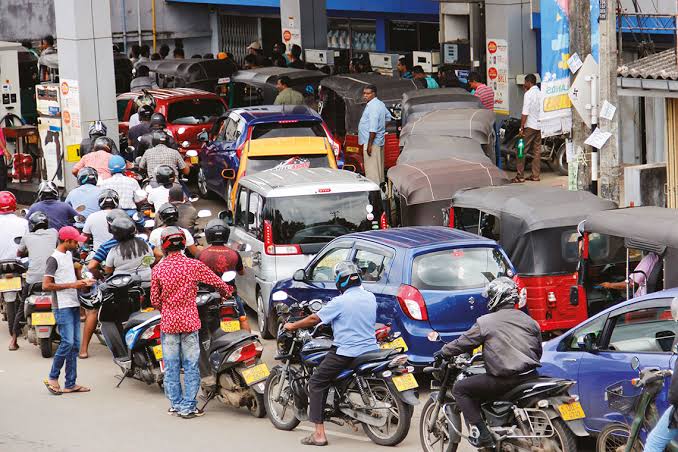
Fuel scarcity is imminent in Lagos and other parts of Nigeria as petroleum tanker drivers have suspended fuel loading, citing alleged harassment by officials of the Lagos State Government and the Federal Ministry of Transportation.
Additionally, telecommunications companies have raised concerns over potential network blackouts, as the strike could disrupt diesel supply, threatening mobile and internet services across the country.
Tanker Drivers Halt Operations
The PUNCH learned that fuel loading was halted on Saturday and Sunday, raising fears of shortages in Lagos and beyond.
However, the Lagos State Government insists it is merely enforcing its e-call-up system, a digital platform launched in September 2024 to regulate truck movement in the Lekki-Epe corridor and prevent congestion.
Speaking with The PUNCH, the National President of the Nigerian Association of Road Transport Owners (NARTO), Yusuf Othman, alleged that government officials were harassing drivers without justification.
“The problem we have now is that the task force in Lagos State has towed our trucks and they are beating our drivers. They damaged the vehicle of the union. So, because of that, there was no loading yesterday (Saturday), and there is no loading today (Sunday). I don’t know whether there will be any form of loading tomorrow in Lagos,” Othman stated.
When asked if this would lead to fuel scarcity, he replied, “Well, I wouldn’t know, but I know there was no loading yesterday, there is no loading today, and there may not be tomorrow. And all is because of this Lagos task force.”
Othman clarified that the issue is unrelated to the recent ban on 60,000 trucks, attributing the problem to enforcement actions by the Lagos State Government and the Federal Ministry of Transportation.
Lagos Government Responds
Reacting to the claims, the Lagos State Government reiterated its commitment to ensuring smooth traffic flow along the Dangote Petroleum Refinery corridor.
The Permanent Secretary of the Lagos State Ministry of Transportation, Wale Musa, dismissed allegations of harassment, stating that the enforcement was necessary to prevent a recurrence of the notorious Apapa gridlock.
“I am aware that some enforcement was done at the Dangote refinery axis. If it is the same issue, the enforcement is to ensure compliance with our e-call-up system.”
“We won’t allow them to turn that place into another Apapa. Their attempt at blackmail will not suffice. We urge willful compliance for everybody’s sake,” Musa told The PUNCH.
Telcos Warn of Network Blackout
Telecommunications companies have sounded the alarm over a potential network blackout if the diesel supply crisis continues.
The Association of Telecommunications Companies of Nigeria (ATCON), representing major telecom operators, warned that prolonged diesel shortages could disrupt services.
“If diesel supply is disrupted, it will impact network operations because telcos rely on diesel to power their sites almost daily,” ATCON President, Tony Emoekpere, told The PUNCH.
Telecom giants such as MTN, Airtel, Globacom, and 9mobile depend on infrastructure providers like IHS Towers, American Tower Company, and Pan African Towers to power base stations with diesel generators.
Emoekpere emphasized the urgent need for contingency measures to protect Nigeria’s telecommunications infrastructure.
“This situation wasn’t planned for. Even in cases like this, there should be mechanisms in place to ensure telecom services are not compromised. Telecom infrastructure is critical national infrastructure and should not be left vulnerable,” he stressed.
In a separate statement, ATCON urged the governors of Lagos and Ogun states to intervene and facilitate diesel distribution to telecom operators to prevent service disruptions.
“This is not just a telecom issue—it is a national emergency that could cripple economic activities and compromise public safety,” Emoekpere warned.
If diesel supply is not restored soon, millions of subscribers could experience network disruptions, affecting businesses and individuals who rely on stable communication services for daily operations.
